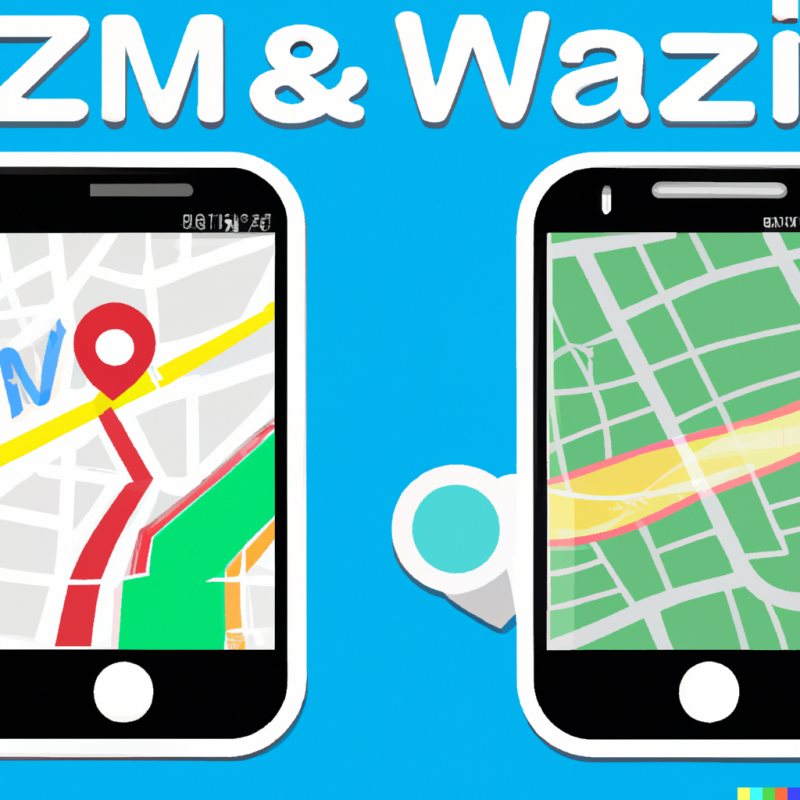
Google Maps and Waze have been dominating the navigation app market for years, and their success has led to the decline of several other companies in the same space. Recently, a top sat-nav company announced that it would be abandoning its efforts to compete with the tech giants, citing their overwhelming dominance in the market as the reason for its decision. This article will explore the reasons behind Google Maps and Waze’s success and the impact they have had on the navigation app industry.
Sat-Nav Company Abandons the Fight
Mio, a Taiwanese company that had been producing navigation devices and software for over a decade, recently announced that it would no longer be competing with Google Maps and Waze. The company cited the overwhelming dominance of the tech giants in the market, stating that it was no longer feasible to try and compete with them. Mio’s decision is just the latest example of the impact that Google Maps and Waze have had on the navigation app industry.
The Success of Google Maps and Waze
Google Maps and Waze are two of the most popular navigation apps in the world. Both apps offer users a range of features, including turn-by-turn directions, real-time traffic updates, and satellite imagery. But what has made these apps so successful, and why have they been able to dominate the navigation app market?
Google Maps
Google Maps was launched in 2005 and has since become the go-to navigation app for millions of people around the world. Some of the factors that have contributed to its success include:
- Integration with other Google services, such as Gmail and Google Calendar
- Accuracy of directions and real-time traffic updates
- Constant updates and improvements to the app’s features
- Availability on multiple platforms, including Android and iOS
- User-friendly interface and easy-to-use search function
Waze
Waze is a navigation app that uses real-time traffic data to provide users with the fastest and most efficient routes. The app was launched in 2008 and was acquired by Google in 2013. Some of the factors that have contributed to its success include:
- Real-time traffic updates and crowd-sourced data
- Ability to report road hazards, accidents, and police activity
- Social features, such as the ability to connect with friends and share your location
- Availability on multiple platforms, including Android and iOS
- User-friendly interface and easy-to-use search function
The Impact on the Navigation App Industry
The success of Google Maps and Waze has had a significant impact on the navigation app industry. Smaller companies have found it increasingly difficult to compete with the tech giants, and many have been forced to abandon their efforts altogether. Some of the ways in which Google Maps and Waze have affected the industry include:
Increased Competition
Before the launch of Google Maps and Waze, the navigation app market was dominated by companies like Garmin and TomTom. However, the success of Google Maps and Waze has led to increased competition in the market. Today, there are dozens of navigation apps available, but few have been able to achieve the same level of success as Google Maps and Waze.
Increased Innovation
The success of Google Maps and Waze has also led to increased innovation in the navigation app industry. Smaller companies have been forced to come up with new and innovative features in order to compete with the tech giants. This has led to the development of new features such as augmented reality navigation, voice-controlled navigation, and more.
Consolidation of the Industry
The success of Google Maps and Waze has also led to consolidation in the navigation app industry. Larger companies have acquired smaller ones in an effort to compete with the tech giants. For example, Nokia acquired Nav
teq, a navigation software company, in 2008. Garmin acquired Navigon, a German navigation company, in 2011. And in 2017, Telenav acquired Skobbler, a navigation app developer.
Shift in Business Models
The success of Google Maps and Waze has also led to a shift in the business models of navigation app companies. Many companies have moved away from selling navigation devices and software and have instead focused on providing free navigation apps. These apps are often supported by advertising or in-app purchases.
Impact on Traditional GPS Devices
The success of Google Maps and Waze has also had an impact on traditional GPS devices. Sales of these devices have declined in recent years as more people have turned to navigation apps on their smartphones. In 2019, the global market for GPS devices was valued at $22.9 billion, down from $26.5 billion in 2016.
Conclusion
Google Maps and Waze have had a significant impact on the navigation app industry. Their success has led to increased competition, innovation, consolidation, and a shift in business models. Smaller companies have found it increasingly difficult to compete with the tech giants, and many have been forced to abandon their efforts altogether. The success of Google Maps and Waze has also had an impact on traditional GPS devices, with sales of these devices declining in recent years. As technology continues to evolve, it will be interesting to see how the navigation app industry continues to adapt and change.






